How do gymnasts not get dizzy during their routines? Gymnastics requires a lot of spinning, flipping, and twisting, which would make most people dizzy beyond control!
In this article, we will explore some of the techniques and strategies that gymnasts use to avoid dizziness and complete their routines successfully.
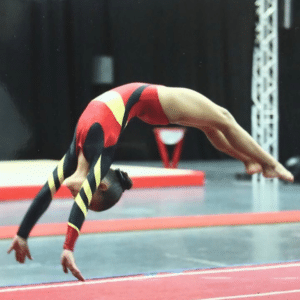
Table of Contents
- The Science of Dizziness
- Techniques for Avoiding Dizziness
- Other Factors That Contribute to Dizziness
- Conclusion
The Science of Dizziness
First, let’s take a closer look at why gymnasts might feel dizzy during their routines. Dizziness is caused by a disruption of the vestibular system, which is responsible for balance and spatial orientation.
When the body spins or moves quickly, the fluid in the inner ear can become disoriented, leading to feelings of dizziness, nausea, and disorientation.
Techniques for Avoiding Dizziness
Gymnasts have developed a variety of techniques to avoid dizziness during their routines. Here are some of the most common techniques:
1. Spotting
Spotting is a technique used by gymnasts during spins and turns. It involves fixing the eyes on a specific point and then whipping the head around quickly to bring the eyes back to that point. This helps the brain to stay oriented and can reduce feelings of dizziness. Figure skaters and dancers also use spotting techniques when spinning and rotating.
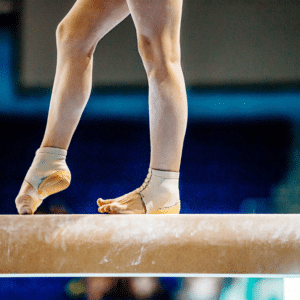
2. Mental Preparation
Gymnasts also use mental preparation to avoid dizziness. They visualize their routines and practice them in their minds, which can help the brain to adjust to the movements and reduce feelings of disorientation.
3. Practice and Repeat
Building endurance is another important strategy for avoiding dizziness. By practicing the same skills over and over again gymnasts become adjusted and dizziness decreases. Gymnasts train their bodies to handle the intense movements and forces of their routines, which can help to reduce feelings of dizziness.
4. Controlled Breathing
Controlled breathing is another technique used by gymnasts to avoid dizziness. By controlling their breathing and staying relaxed, gymnasts can help to reduce feelings of dizziness and maintain their focus during their routines.
Other Factors That Contribute to Dizziness
It’s also important to note that other factors can contribute to dizziness during gymnastics routines. For example, dehydration, fatigue, and stress can all increase the likelihood of feeling dizzy. That’s why gymnasts also pay close attention to their physical and mental health and work to stay hydrated, well-rested, and focused.

Conclusion
In conclusion, gymnasts use a variety of techniques and strategies to avoid dizziness during their routines. These include spotting, mental preparation, building endurance, and controlled breathing. Additionally, gymnasts pay close attention to their physical and mental health to reduce the likelihood of feeling dizzy.
With experience, the feeling of dizziness reduces as the body and brain become naturally adjusted to the feeling of performing difficult gymnastics skills.
While dizziness can be a challenge for gymnasts, these techniques and strategies can help them to stay focused, perform their best, and achieve their goals.
- The Ultimate Guide to Gymnastics Moves On Floor
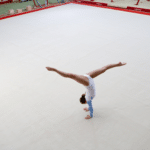 In this article, we guide you through dozens of gymnastics moves on floor that all gymnasts should aim to master. This list is based on… Read more: The Ultimate Guide to Gymnastics Moves On Floor
In this article, we guide you through dozens of gymnastics moves on floor that all gymnasts should aim to master. This list is based on… Read more: The Ultimate Guide to Gymnastics Moves On Floor - Gymnastics Shapes (Skills List)
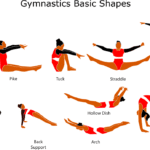 Basic gymnastics shapes are the building blocks of gymnastics. Every skill from rolls, swings and somersaults requires a gymnast to change their body into a… Read more: Gymnastics Shapes (Skills List)
Basic gymnastics shapes are the building blocks of gymnastics. Every skill from rolls, swings and somersaults requires a gymnast to change their body into a… Read more: Gymnastics Shapes (Skills List) - What Makes a Good Gymnast (8 qualities)
 What makes a good gymnast? Strength, power, flexiblity to name just a few qualities. But there are lots of gymnasts that have the right physical… Read more: What Makes a Good Gymnast (8 qualities)
What makes a good gymnast? Strength, power, flexiblity to name just a few qualities. But there are lots of gymnasts that have the right physical… Read more: What Makes a Good Gymnast (8 qualities) - How to hold a Handstand (tutorial)
 Being able to hold a handstand correctly will help a gymnast unlock a world of more advanced skills due the shape being used in so… Read more: How to hold a Handstand (tutorial)
Being able to hold a handstand correctly will help a gymnast unlock a world of more advanced skills due the shape being used in so… Read more: How to hold a Handstand (tutorial) - The Ultimate Gymnastics Skills List (Floor)
 Gymnastics Skills List: Your Ultimate Guide to understanding the essential floor moves in gymnastics. This comprehensive collection is a treasure trove for anyone keen on… Read more: The Ultimate Gymnastics Skills List (Floor)
Gymnastics Skills List: Your Ultimate Guide to understanding the essential floor moves in gymnastics. This comprehensive collection is a treasure trove for anyone keen on… Read more: The Ultimate Gymnastics Skills List (Floor) - 8 Vault Gymnastics Skills (for beginners to learn)
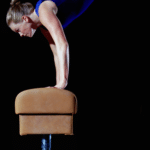 Vault gymnastics skills are used in both Men’s and Women’s Artistic gymnastics. A lot of beginner gymnasts will therefore be taught Vault to help them… Read more: 8 Vault Gymnastics Skills (for beginners to learn)
Vault gymnastics skills are used in both Men’s and Women’s Artistic gymnastics. A lot of beginner gymnasts will therefore be taught Vault to help them… Read more: 8 Vault Gymnastics Skills (for beginners to learn)
